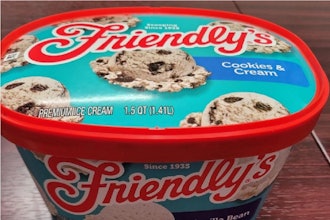This article originally appeared in Food Manufacturing's January/February 2014 print issue.
What’s in a name? Or, more appropriately for food manufacturers, what’s on a label? In 2014, this question will be analyzed from angles we’ve yet to imagine.
While the federal government struggles to implement the Food Safety and Modernization Act, industry groups and large food processors are taking up the mantle to define food labeling. For some large processors, the sustainable practices often associated with this type of labeling, as well as the larger consumer movement for food information, have become part of corporate strategy and reliable ingredient sourcing. Food manufacturers are wise to keep a close watch on these developing trends to best position their operations for changes in both labeling and the product content it describes.
GMOs: General Mills kicked off 2014 by slapping “Not Made With Genetically Modified Ingredients” labeling on boxes of original Cheerios. The breakfast classic’s primary ingredient, oats, made the transition simple because that crop’s never been genetically modified. But, like green grocery innovator Whole Foods’ demand that suppliers label GMO content by 2018, such moves by big players are a bellwether of what could become the norm.
Food manufacturers are keeping a hawk’s eye on GMO labeling policy. Campbell Soup Co. Vice President of Manufacturing Mark Cacciatore said in an interview in December “… we need consistency in legislation. It would be chaos for us if there were different [GMO labeling] requirements in different parts of the country.”
Last year, 26 states introduced GMO labeling legislation, sparking several highly publicized and narrowly defeated votes. Only two states succeeded: Maine and Connecticut passed GMO labeling laws that go into effect only if four other large states also implement labeling laws. Several states are already proposing laws regarding GMO agriculture and foods this year.
The Grocery Manufacturers Association (GMA) is pitching a federal GMO policy that would make the labeling voluntary, preempt state laws on GMO labels and shift much of the responsibility of OKing GMO foods to the Food and Drug Administration.
Natural: In the same proposal, the GMA wants the FDA to define the term “natural” and preempt states from defining the word. The FDA admits “natural” is difficult to define. It hasn’t objected to foods labeled “natural” if they’re free of added color, artificial flavors or synthetic substances. But that’s advice, not law. In the last year, well-known manufacturers including Pepperidge Farms, Naked Juice, Ben & Jerry’s and Frito-Lay dropped the word from their labeling and marketing as suspect ingredients were called into question amid a flurry of class-action suits.
Sustainable: McDonald’s recently vowed to source only “verified sustainable beef” for its burgers by 2016. This year, the fast food giant said it aspires to support development of global principles and criteria for that beef. "Sustainable," like "natural" is another labeling term that lacks uniform definition.
Nutrition Labeling: Facts Up Front, the front-of-package nutrition labeling initiative spearheaded by the GMA and Food Marketing Institute in 2011, is expected to unleash a $50 million ad campaign. Supporters including General Mills, Kraft and Mondelez International will likely fund their own promotion of the labeling. The GMA said as many as 80 percent of products from participating manufacturers will display Facts Up Front by the end of 2014.
Food Date Labels: In its campaign against food waste, the National Resource Defense Council (NRDC) has honed in on food date labels printed on packaging. Often interpreted by consumers and retailers as expiration dates, the council and some manufacturers say this date instead indicates peak freshness. As the date comes and goes, confused consumers toss the food out due to safety concerns. This could add up to hundreds of dollars’ worth of annual waste for American households. The NRDC calls for a simpler date labeling system for food. Though the FDA and USDA regulate food label dating, they don’t define the date terms, leaving it up to states. Lack of an industry-wide definition equals more food in dumpsters, according to the NRDC.
Food labeling is the industry topic to watch in 2014. Food Manufacturing will keep you posted with daily news, articles and blogs at www.foodmanufacturing.com.





















